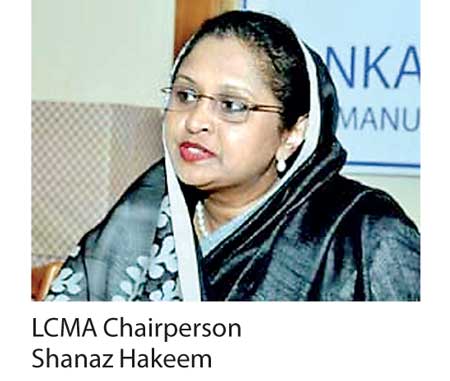Tuesday Feb 24, 2026
Tuesday Feb 24, 2026
Monday, 25 September 2017 00:10 - - {{hitsCtrl.values.hits}}

By Charumini de Silva
The Lanka Confectionery Manufacturers Association (LCMA) is actively seeking Government intervention to introduce a ‘negative list of manufacturing’ to safeguard local firms engaged in the industry before opening up the economy to giants like India and China.
Considering the continued success of the confectionery manufacturing industry, LCMA insisted the Government should introduce a negative list for manufacturing which would prevent any overseas manufacturer entering the local market, highlighting that it was one of the methods used in many countries to safeguard the industry and its stakeholders.
“If there is a surplus of manufacturing output (self-sufficient) of product/category in a given country, then they make it to the ‘negative list of manufacturing’ which prevents any foreign manufacturer from entering the local market. As confectionery is such a category with surplus production output and more than 50,000 people are involved directly and indirectly in the industry, we strongly request the Government to place the confectionery category in the negative list of manufacturing,” LCMA Chairperson Shanaz Hakeem told the Daily FT.
It was pointed out that the biscuit output per year is over 80,000 MTs and LCMA members provide 50,000 direct and 500,000 indirect employment opportunities, while a large number of entrepreneurs and SME businesses have directly contributed to the industry.
Today LCMA members dominate in the Sri Lankan market in each and every segment in which they operate, be it biscuits, chocolates, cakes, hard and soft boiled sweets, frozen confectionery or dessert mixes.
“We collectively export proudly ‘Sri Lankan manufactured’ confectionery products to 55 countries around the globe and have just started to become prominent in some of these countries. We as an industry have been resilient and overcome many challenges, surpassing many larger countries that enjoy higher economies of scale benefits. This success was achieved mainly due to the sustainable business practices the industry adopted,” she added.
Noting that the industry was aware that the Government planned to liberalise the economy and also reduce the level of indirect taxes by adjusting the ratio of direct to indirect taxes, they however urged the Government to engage with them and understand their industry before introducing market liberalisation measures.
She emphasised that countries such as China and India, with large populations which were still growing at a healthy pace, also had the advantage of having plentiful raw material resources with economy of scale that allowed players in such countries to have a definite price advantage in raw material and labour as well as energy.
Hakeem also appealed for the Government to seriously look at reducing duties on raw material imports that are ‘not manufactured’ and have ‘no future potential of being manufactured’ in Sri Lanka as an initial step, while allowing industry and the market to adapt to this before a wide-ranging policy of liberalisation is enacted.
“By taking slower steps, our industry will have the ability to evolve and capitalise on the benefit, eventually becoming competitive with giants around the globe,” she pointed out.